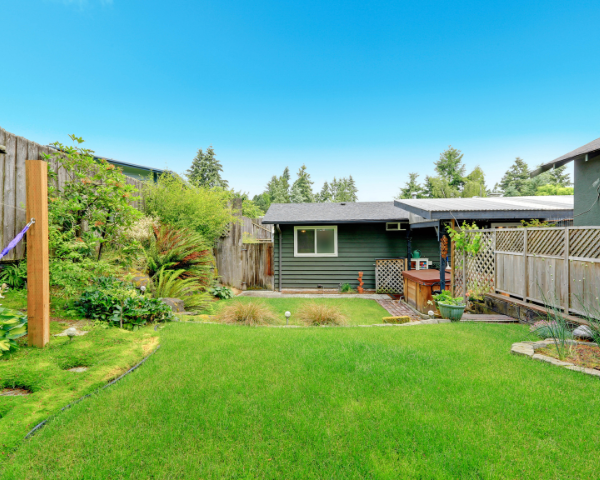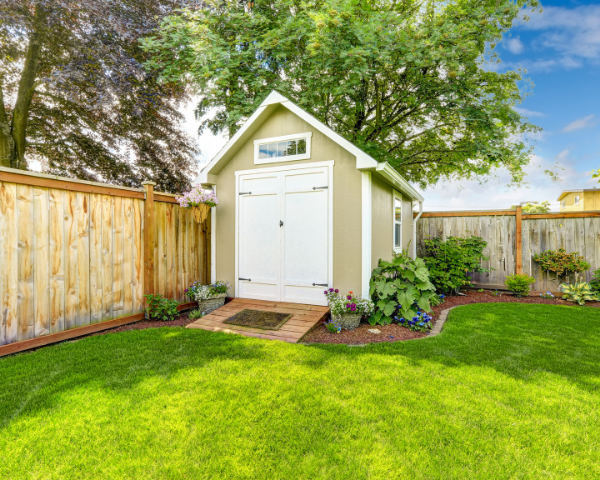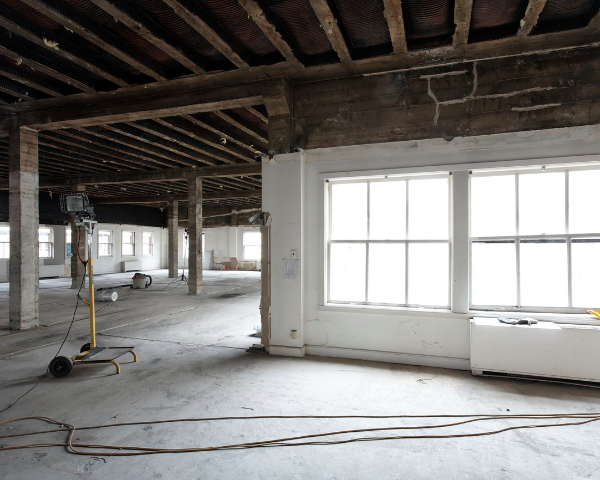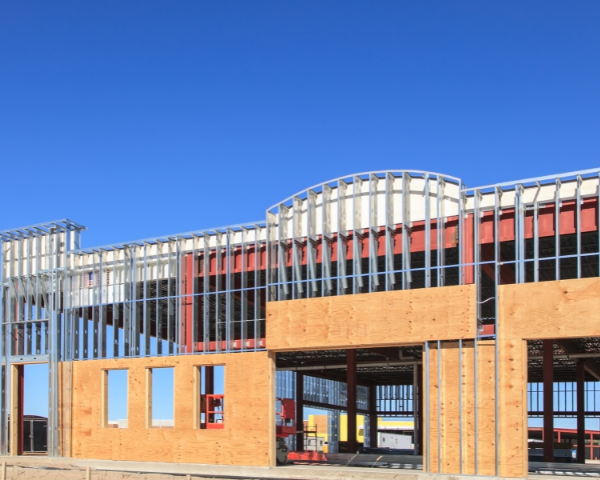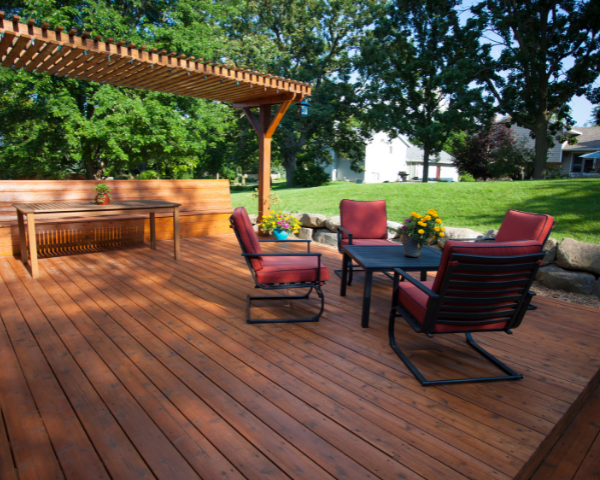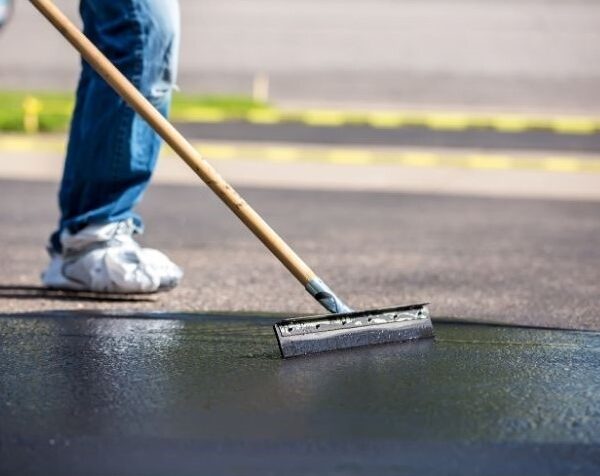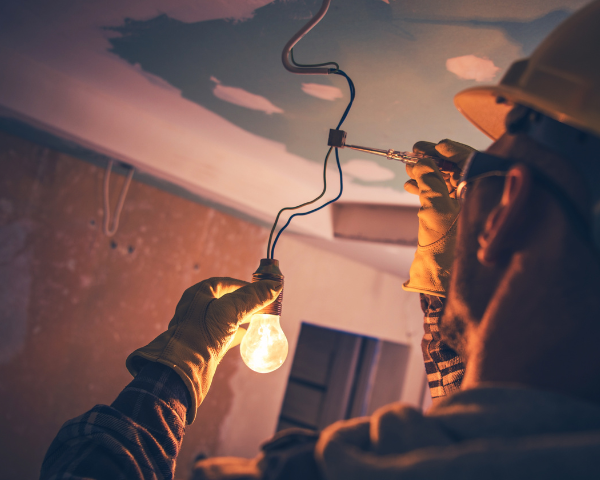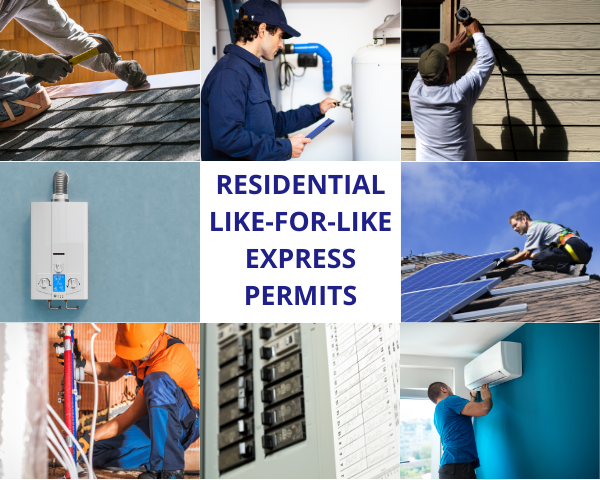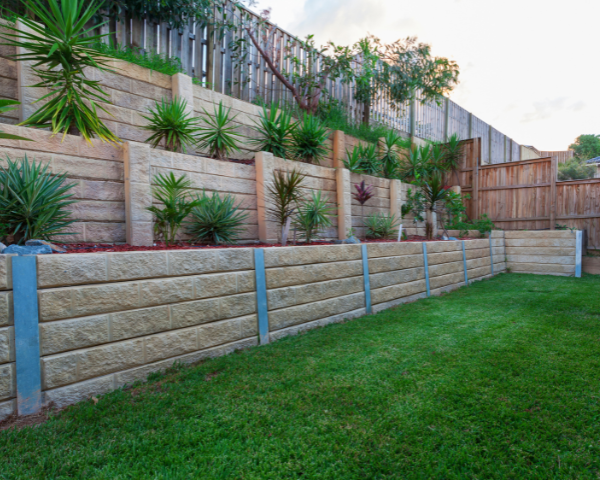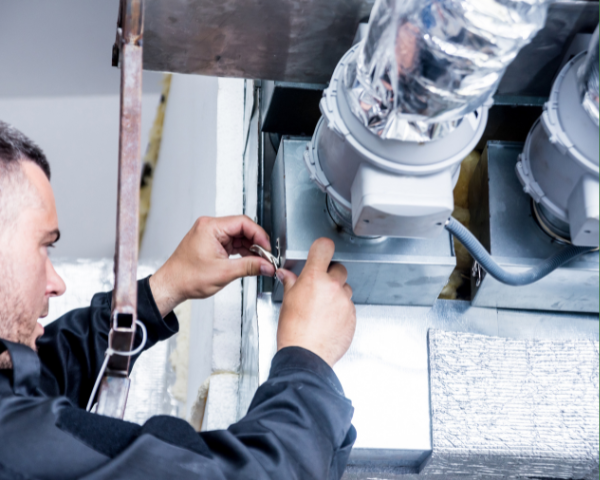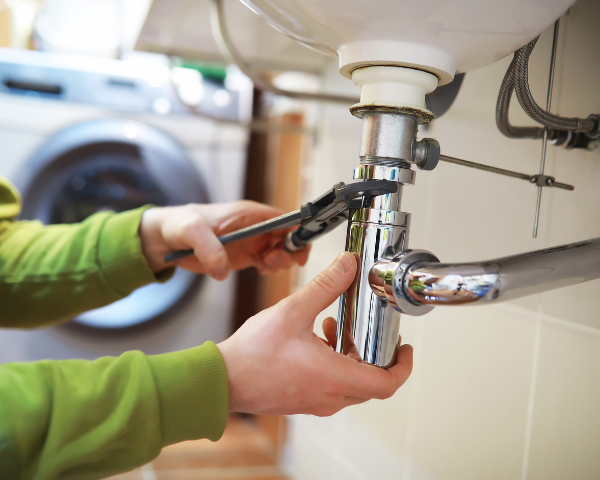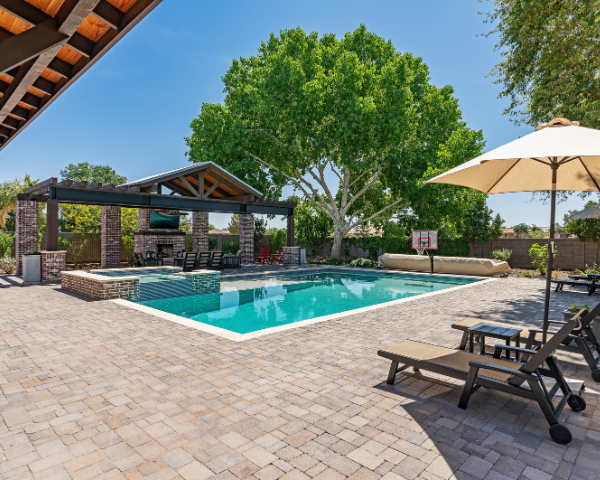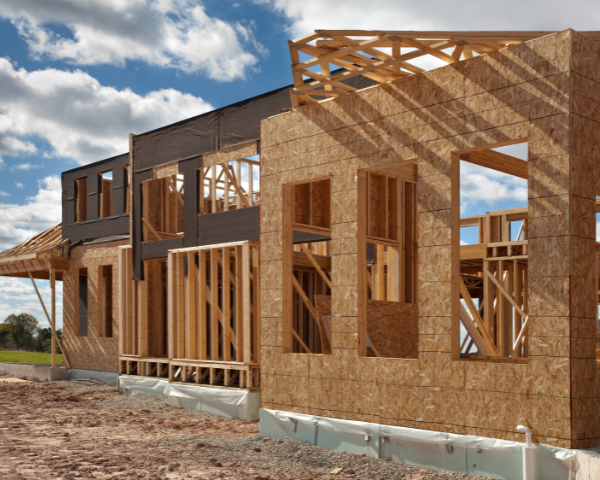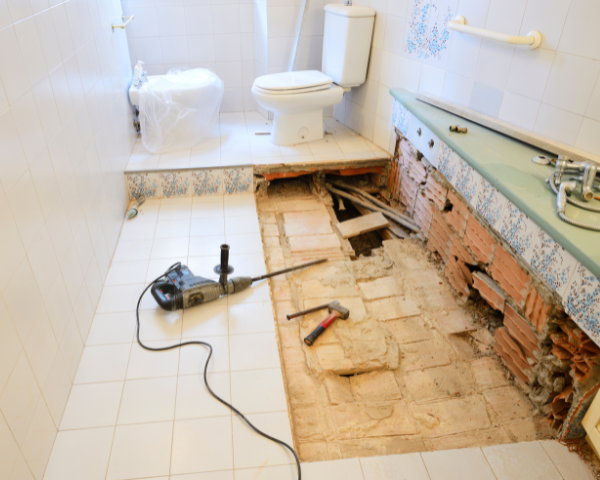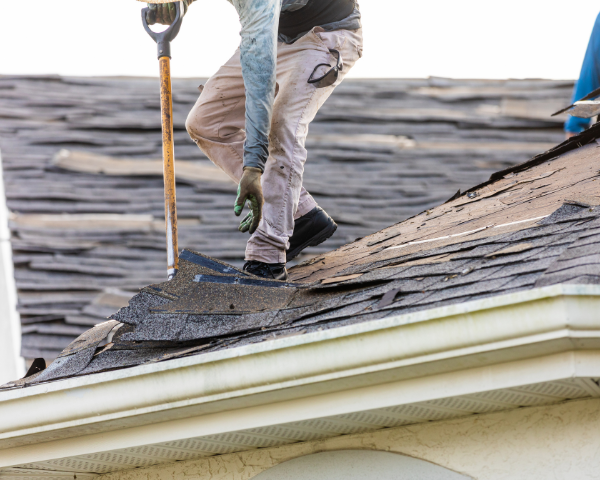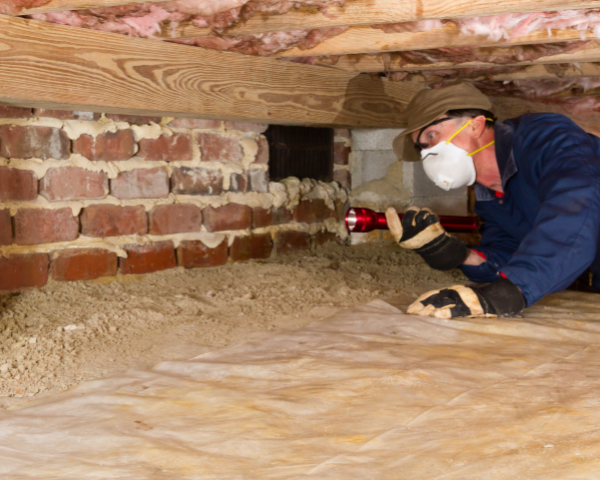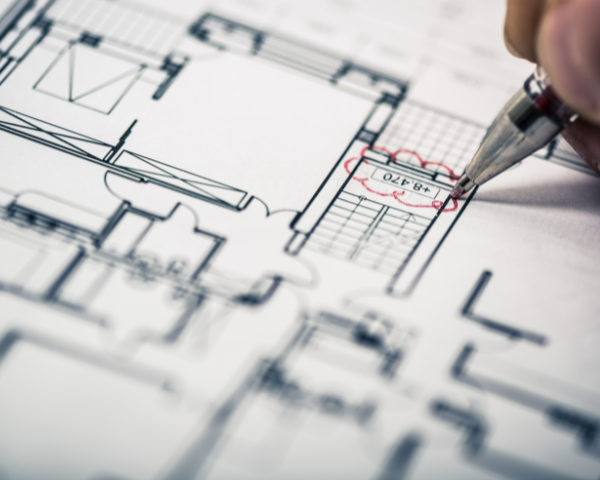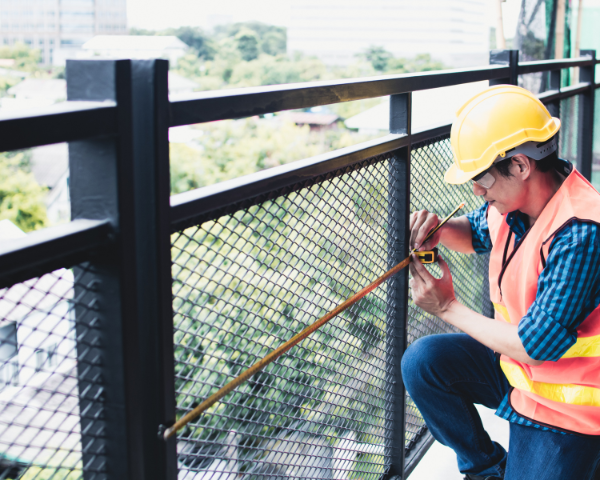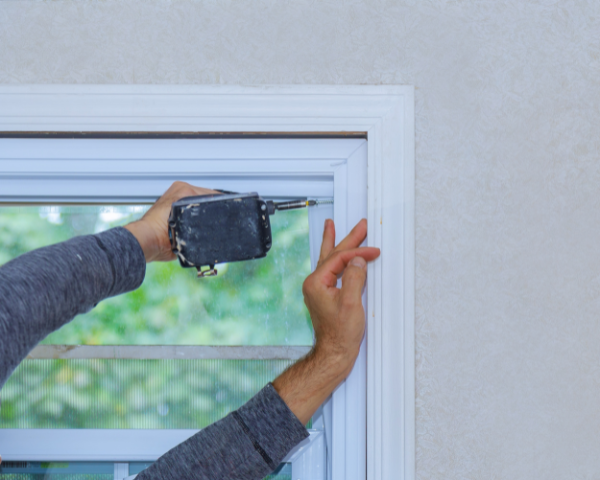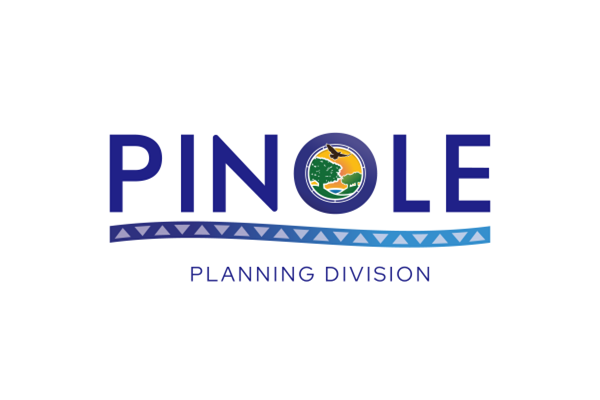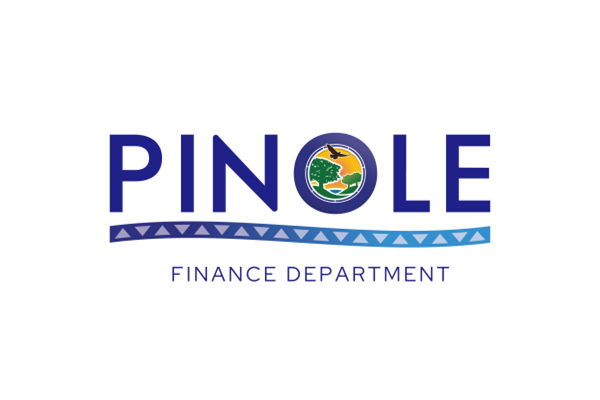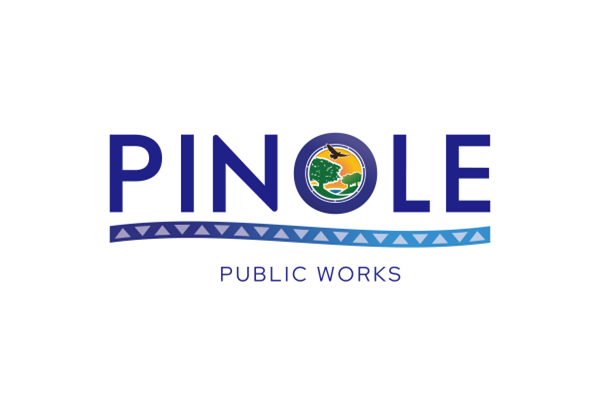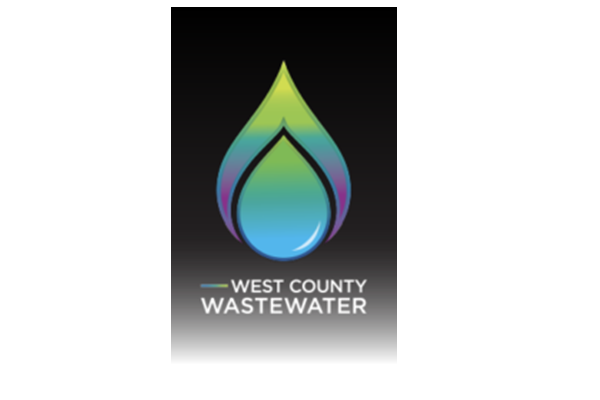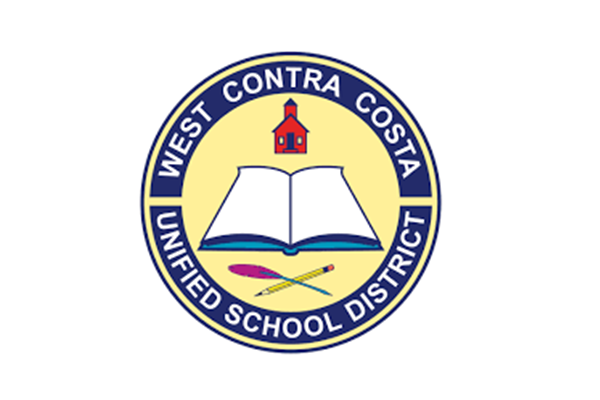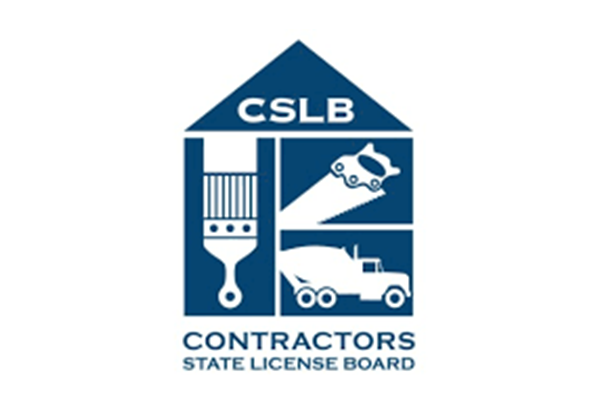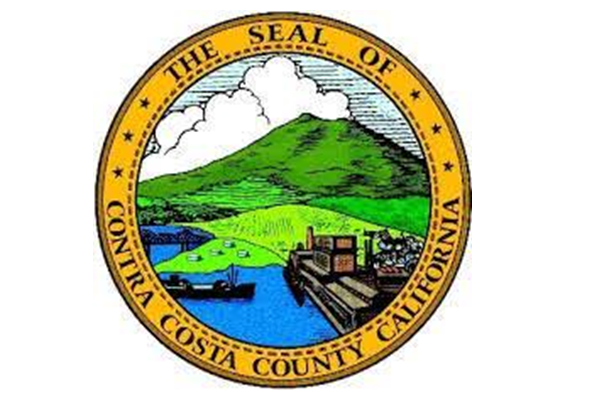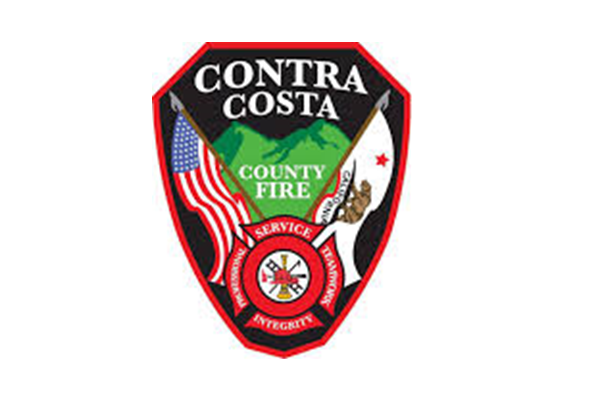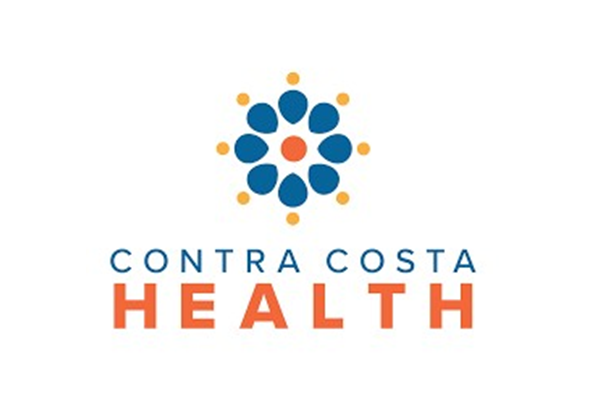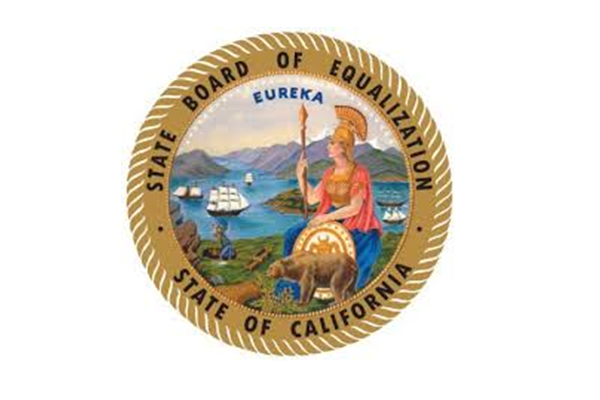Building Permit Requirements

- Building Permitting Requirements
- Other Permitting Requirements
- Checklists, Forms, Guidelines & Bulletins
- Frequently Asked Questions
Building Permitting Requirements
APPLYING FOR A BUILDING PERMIT ONLINE
Permits that require plans and review can take several weeks or months to complete, and often require changes during the process.
Need to Know
- You need to apply online. Paper and email applications are no longer accepted.
- Permit costs vary depending on the type of permit and job valuation.
- Timeline varies depending on the size and complexity of the project.
- If you do work without a permit, you will need to pay a fine and undo the work done.
Before you Start
- Before you can get a building permit for a large or complicated project, you might need to get planning approvals first. This could involve approval from the Planning Commission and City Council. Contact us to find out if planning approval is required for your project.
- Other agencies and departments may need to be involved such as Public Works, Contra Costa Fire Protection District, Contra Costa County Health Department, or utility companies. They may have their own requirements and fees.
- Permits have different requirements, depending on the nature of the work. Before you apply, find the permit you need and prepare the required materials.
- If you’ve already been issued a permit, but you need to make revisions, learn how to make changes to your approved building plans.
- We want to help make your project a success. If you have any questions during the process, call, email, or visit our office. We’re here to help.
- Call (510) 724-8912
- For building permits, email BuildingQuestions@pinole.gov
How To Apply Online
Find the permit you need and prepare materials for your application.
Permits have different requirements, depending on the nature of the work. Contact us if you have questions about what permit you need or the requirements.
Learn about types and subtypes of the building permits and their requirements using the SPECIFIC REQUIREMENTS BY PERMIT TYPE tab below.
Login and start your application.
Visit the City of Pinole eTrakit website and login to your account. If you don’t have an account, visit the Create an account page to learn how.
Select Apply / New Permit in the menu under Building & Public Works Permits. You’ll need to confirm that you have read and agree to the Permit Application Confirmation. If you disagree, you will not be able to apply online.
As you navigate through the application process, never use the back arrow in your browser to visit a previous page. Instead, use the Previous Page and Next Page buttons at the bottom of the screen.
Enter your project information.
Here’s where you will describe your project. You may need to reference your plans or documentation to complete all the fields.
- Select a project type and subtype for your project. (Tip: learn about types and subtypes of the building permits and their requirements using the SPECIFIC REQUIREMENTS BY PERMIT TYPE tab below)
- Add a brief description of the work that you are planning to do.
- Cover the basic details of your project
- 60 character max
- This will appear on your permit card
- Add any relevant notes, if you need to expand on your description
- Enter the approximate value of the project. This includes:
- Cost of labor (if you are doing the work yourself, calculate as if you hired a contractor)
- Cost of materials and equipment
- Based on the type of project you select, different fields will populate in the application. Enter the required information, marked with asterisks. If a required field is missing, an error message will appear at the top of the page.
- Add the location of your project.
- Select address or parcel.
- Enter the street number and name or the parcel number.
- Partial address is OK for searching, especially if you are unsure of correct spelling
- Do not include a suffix in your search
- Click search and select the correct address from the results.
Attach required documents.
When you apply online, you can upload documents with your application. Make sure to upload all of the required documents. If your application is not complete, this will extend the time it takes to issue your permit.
This might include plans, diagrams, or other required information, based on the permit type.
- Make sure the filename does not contain any special characters.
- Label the filename so it describes the information, such as “Plan Set” or “Structural Calculations” and include the street address. You can use the description field to add more context.
- Combine pages or sheets so that each document matches a specific requirement.
- There are no file size limits.
- Use PDF format if possible.
When you attach documents, make sure to click through all the buttons and confirm that they were uploaded:
- After you select the file and click upload, you will need to accept a disclaimer and select submit.
- You may need to scroll to see the buttons, depending on the size of your screen.
Repeat the upload process until all your documents are added.
Learn about what to include with your building permit application.
Enter contact information for the project team.
Some of this information may populate based on your account profile and other City records.
Owner: this is the property owner. If this information is in the City’s files, it will populate for you.
Applicant: this information will populate for you based on your account profile.
Contractor: if you are a contractor, this information will populate for you and cannot be edited. If the information is incorrect, contact us. If you are not a contractor, enter your contractor’s contact information. If you are doing the work yourself, you can leave this blank.
Review and submit.
Review your application to make sure the information is correct. You can use the Edit button to make changes. Check the fees to make sure they look right. If everything looks good, select Next Step.
Pay fees
You can pay by credit card or eCheck. We no longer accept paper checks.
- Credit card payments have an additional 2.95% service fee
- eCheck payments have an additional $1 flat service fee
If you are submitting a single application, use the Pay Now option. If you are submitting multiple applications, you can add it to the Shopping Cart if you want to pay for all of them at the same time.
The payment confirmation page will have your permit number. You’ll also get a receipt by email, but it won’t have your permit number on it.
Learn more about payments and fees.
What’s Next?
After you submit your application, we will review your plans. Depending on the nature of the project, the review could involve several departments.
When it’s approved, you will get an email notification with instructions for how to download your permit card and approved drawings. You will need those on site during inspections. The email will also have instructions for scheduling inspections.
How Long Will it Take?
We conduct an initial review of your project within 3 business days to see if anything major is missing.
You can expect to hear back from us within 2 to 8 weeks, depending on the complexity of your project. Small, uncomplicated permits take about 2 to 4 weeks to review. It takes about 5 to 8 weeks for us to conduct an initial review of a larger, more complex project.
Learn about expected turnaround times using the TURNAROUND TIMES tab below.
STANDARD REQUIREMENTS FOR BUILDING PERMIT SUBMITTALS
Building Permit Requirements
Required Declaration Forms with Application
You must include a completed contractor or owner-builder declaration form with every building permit application. Learn more about these forms, and access them here.
Business License Required Prior to Building Permit Issuance
All parties who conduct business in the City of Pinole must have a valid City of Pinole Business License. You don’t need to upload this to your application. We will check the City’s records during the review process.
Requirements for Construction Documents
The following provides typical requirements for construction drawings.
ELECTRONIC FORMATTING REQUIREMENTS
All plans will be submitted electronically. All sheets shall be oriented so the top of the page is always at the top of the computer monitor and set to landscape.
- Pages shall be Indexed/Bookmarked on every submission. The index should note the sheet number as well as the title/description of each sheet.
- The title block of each sheet shall include a 3” x 3” space for the placement of the City’s acceptance stamps. This space must be provided at the same location on each plan sheet.
- Building plans shall be fully dimensioned. This shall include, but not be limited to, framing plans.
- All text shall be easily readable when set to print. Clarity must be equivalent or better than Arial, Gill Sans or Tahoma with a font size of 10pt.
- PDF documents produced by scanning paper documents are inherently inferior to those produced from an electronic source. Documents which are only available in a paper format should be scanned at a resolution which ensures the pages are legible on both a computer screen and when printed. It is recommended that scanning be done at a minimum of 150dpi and a maximum of 300dpi to balance legibility and file size.
- After PDF documents have been compiled, please compress the file to reduce the file size. This will help by taking less time to upload the document to the City system and will also require less storage.
TITLE PAGE
If your permit submittal includes supplemental drawings and information (most do), you need to include a title page with:
- Project address
- Contacts
- Scope
- Date
- Blank area for notes
SITE/PLOT PLAN
Showing the size, position and setbacks of the proposed project in relation to existing buildings, property lines, and public utility easements. This plan is to be drawn to a scale of 1:20, which means 1 inch is equal to 20 feet.
FOUNDATION PLAN
Indicating the type and size of footing used and the pad/finish floor grades.
FRAMING SECTION
Showing sizes of framing members and methods of assembly and, if required, the R-value of insulation being used.
FLOOR PLAN
Detailing the location of walls, supports, size and location of doors, windows, electrical outlets, heater, plumbing fixtures, smoke detectors and the square footage of the project.
ROOF FRAMING PLAN
Showing details of framing, type of sheathing, nailing pattern, roof pitch and type of roof covering.
EXTERIOR ELEVATIONS
Showing two or more sides of the proposed structure.
Waste Management Requirements
Applicants with “covered projects” are required to submit a Waste Management Plan to the Building Division online using the City’s waste tracking system (Green Halo Systems). Green Halo is a no-cost to use web-based service for waste diversion and recycling tracking. Through Green Halo, applicants can establish, monitor, and document their waste management plan and compliance online. Green Halo tracks the City’s construction and demolition debris diversion rate from the landfill and carbon footprint savings. As of September 1, 2022 all construction projects in Pinole must track their waste diversion using the Green Halo system. You will need to create an account if you haven’t yet done so.
What is a “covered project”?
- Residential: All newly constructed buildings, all demolition-only projects, all projects that increase conditioned area, volume, or size, all projects where the addition or alteration is 1,000 sq. ft. or larger, and/or all projects where the project valuation is $50,000 or greater, with the exception of re-roof-only projects.
- Non-Residential: All projects.
What are my options to remove waste from the construction site?
- Republic Services debris box service, OR
- Self-haul, using your own employees, vehicles and equipment to approved recycling facilities
What do I need to provide at the end of the project?
At the end of the project, before you call in for a final building inspection, you need to provide the Debris Disposal & Diversion Report which is also done through Pinole Waste Tracking (Green Halo). You will also need to submit recycling receipts for final approval.
Approved Building Plan Examples
In addition to other requirements, Assembly Bill (AB) 2234 requires local jurisdictions to make available on their websites examples of complete plan sets for at least five types of housing projects. Cal. Health & Safety Code section 19851(a) prohibits the City from duplicating the official copy of any building plans. The official copy is, therefore, available for inspection on the premises of the building division during business hours.
- Accessory Dwelling Unit: BP23-0269
- Single Family Unit with Attached ADU: BP21-0061
- Duplex: BP23-0364
- Triplex: BP19-0302
- Multi-family apartment: BP22-0304
BUILDING PERMIT PROJECT TYPES AND REQUIREMENTS
TURNAROUND TIMES
Turnaround times for processing building permits depend on the type and complexity. Here are some estimated time frames so you can plan around them:
Express Permitting
- Instant Residential Solar and ESS Permits will be issued instantaneously.
- Express Permits for limited types of like-for-like residential work will be issued in 2-3 business days from application.
Non-Structural Projects
Many simple permits can be approved in less than a month. If information is missing or does not meet the requirements, a back-and-forth could extend the time frame for approval.
Projects Requiring Plan Check
- We review projects to make sure they conform to local, state, and federal regulations. We conduct an initial review of your project within 3 business days to flag if anything major is missing.
- You can expect to hear back from us within 2 to 8 weeks, depending on the complexity of your project. Small, uncomplicated permits take about 2 to 4 weeks to review. It takes about 5 to 8 weeks for us to conduct an initial review of a larger, more complex project.
Resubmittals
If information is missing or does not meet the requirements, we will contact you and let you know:
- You will get plan review comments in the online eTRAKiT system.
- You will need to fix the error and resubmit your plans online.
- This may extend the time frame for approval.
Tips for Faster Turnaround Time
- Ask us any questions you have before you submit your application. If it’s a complex project, meet with us first.
- Use high-quality design professionals.
- Make sure your plans reflect and comply with current building, electrical, plumbing, and energy efficiency codes.
- Provide required documentation for each project type, including contractor or owner-builder declarations.
FEES AND PAYMENTS
Most building permit fees range based on the type and value of the work, while some building permit types are a flat fee. The total cost includes:
- Permit and inspection fee
- Plan check fee
- General Plan Maintenance Fee
- Technology Fee
- Strong Motion Instrumentation Program (SMIP) fee
- California SB 1473 Building Standards Fee
These fees are automatically calculated for you when you apply online. You need to pay these fees when you submit your application.
Your project may have other fees, such as development impact fees. You need to pay these before the building permit is issued.
CALCULATING THE VALUE OF YOUR PROJECT
The value of your project includes:
- Labor and overhead costs
- Cost of materials and equipment
If you are doing the work yourself, you should calculate as if you were hiring a contractor.
Building Valuation shall be based on the higher of 1) the applicant’s estimated valuation or 2) the most current Building Valuation as printed and published by the International Code Council and adjusted using the most current City Cost Index printed and published by R. S. Means Building Construction Cost Data. CRC, R108.3 Building permit valuations. The final building permit valuation shall be set at an amount that allows the City to recover its costs of applicant plan check, permit and inspection activities.
WORKING WITH A CONTRACTOR
In California, you can only get a permit if you are either a:
- Properly licensed California contractor
- Property owner who is acting legally as an owner-builder
- If you are working with a contractor, make sure their license is current. They also need a current City of Pinole business license.
If you are planning to do the work yourself, learn how to be an owner-builder.
DOING THE WORK YOURSELF
If you are planning to do the work yourself as an owner-builder, you assume responsibility for the overall project. You can hire a licensed contractor to perform portions of your project as a subcontractor for a bid or lump sum basis.
If you want to hire people who are unlicensed to do some of the work, here’s what you need to know:
- You cannot hire unlicensed individuals on a bid or lump sum basis for more than $500.
- You can hire unlicensed individuals for an hourly wage.
- You may be responsible for state and federal tax withholding, workers’ compensation insurance, unemployment insurance, and other legal liabilities.
There are limits on the number of owner-builder projects you can do in certain time frames.
MAKING CHANGES TO APPROVED PLANS
If you decide to make changes to your approved plans, these changes must be reviewed by the Building Division, as well as all other Departments/Divisions/Agencies that originally reviewed and approved the original permit. Please note that additional fees are required for this review. To learn more, review the specific requirements listed under the “Revision to Approved Plans” permit type In the PROJECT TYPES AND REQUIREMENTS Tab above.
What is a Building Permit?

A building permit gives you legal permission to start construction of a building project in accordance with approved drawings and specifications.
What Work Requires a Permit?

Building permits are typically required for all structural, electrical, plumbing, or mechanical work whether inside or outside of the building. Permits are usually required for new buildings, additions (bedrooms, bathrooms, family rooms, etc.), residential work (decks, garages, fences,fireplaces, pools, water heaters, etc.), renovations (garage conversions, basement furnishings, kitchen expansions, reroofing, etc.), electrical systems, plumbing systems, HVAC (heating, ventilating, and air conditioning) systems. Although a contractor will often secure the necessary permits, the responsibility for obtaining building, mechanical, electrical or plumbing permits lies with the property owner. Before beginning ANY construction or remodeling project, be sure to contact the Building Division. A staff member can verify what permits are needed, the cost and the proper procedure.
The following is a partial list of common residential and commercial projects that require Building Permits:
RESIDENTIAL
- Installation of free-standing fireplaces (wood burning not allowed)
- Fireplace inserts
- Replacement of hot water heater, furnace or air conditioner
- Water softeners
- New sewer, water or gas line
- Changes or replacement of retaining walls
- Room additions
- Window Replacement
- Fire damage repair
- Electric service upgrade, electric service panel relocation, and new wiring or electric outlets
- Installation of heat pumps or solar panels
- Reconstruction or modification of a dwelling
- New siding or new roof
- Termite repair work
- Pools, spas and hot tubs
- Patio covers, decks over 30 inches high OR over 120 square feet OR attached to the house, and gazebos
- Permanent affixed or freestanding signs
COMMERCIAL
- Accessibility Upgrades
- Change in use
- Replacement of hot water heater, furnace or air conditioner
- New or replacement electrical panel
- New siding or roof
- Window replacement
- Swimming pool
- Tenant Improvements
What Work is Exempted from a Permit?

Pursuant to the California Building Code, Section 105.2, the following work is exempted from a Building Permit. It is always a good idea to either call or email the Division if you have any questions about an upcoming project, and to verify permitting requirements:
- Cosmetic work, such as installing carpet, painting, wallpapering.
- Minor improvements, such as replacing a garbage disposal or dishwasher.
- One-story detached accessory buildings used as tool and/or storage sheds or playhouses and under 120 Sq. ft. of projected roof area and do not have electrical or plumbing. Note: if structure exceeds 8 feet in height a permit is required.
- Fences not over seven (7) feet in height (typically, fences shorter than seven (7) feet do not require building permits; however, because all fences must comply with the placement, height, and appearance requirements of the Pinole Municipal Code Chapter 17.42, applicants should contact a planner (PlanningQuestions@pinole.gov) prior to doing any construction of a fence.
- Retaining walls under four (4) feet in height measured from the bottom of the footing to the top of the wall and not supporting a surcharge. Surcharge is a vertical load imposed on the retained soil that may impose a lateral force in addition to the lateral earth pressure of the retained soil. Examples include sloped soil, vehicle loads supported by retained soil and fences installed on top of retaining walls.
- Swimming pools less than 5,000 gallons set above the adjacent grade.
- Detached platforms, walks and decks without a cover, under 30 inches high and under 120 sq. ft.
- Removable window awnings projecting not more than 54 inches.
What is required as to complete a permit Application?

When applying for a permit, certain information is required to complete the permit Application, including the following:
- Complete and accurate description of work
- Project Location (street number and name)
- Legal property owners name, address, email and telephone number
- Proposed work valuation (valuation is the total value of the work for which a permit is being issued, such as electrical, gas, mechanical, plumbing equipment, and other permanent systems, including materials and labor)
- Proof of Workman Compensation
- State Contractors License Information
- Current City Business License
- The owner, an authorized agent, or a licensed contractor is the only person who can legally apply for a building permit. Upon approval of the application and issuance of the permit, the applicant/contractor has 365 days (12 months) to commence work on the project, otherwise, the permit automatically expires.
What is a Plot Plan?

A Plot Plan shows the size, position and setbacks of the proposed project in relation to existing buildings, property lines, and public utility easements. This plan is to be drawn to a scale of 1:20, which means 1 inch is equal to 20 feet.
What is a Foundation Plan?

A Foundation Plan indicates the type and size of footing used and the pad/finish floor grades.
What is a Framing Section?

A Framing Section shows sizes of framing members and methods of assembly and, if required, the R-value of insulation being used.
What is a Floor Plan?

A Floor Plan details the location of walls, supports, size and location of doors, windows, electrical outlets, heater, plumbing fixtures, smoke detectors and the square footage of the project.
What is a Roof Framing Plan?

A Roof Framing Plan shows the details of framing, type of sheathing, nailing pattern, roof pitch and type of roof covering.
What are Exterior Elevations?

Exterior Elevations show two or more sides of the proposed structure.
What other agency review is required during (or prior to) a Building Permit Review?

The Divisions, Departments and Agencies listed below have permitting requirements that you should be aware of prior to submitting an application for a Building Permit.
City of Pinole Departments and Divisions
EXTERNAL AGENCIES
What are the resale requirements for properties in pinole?

If you plan to sell or remodel your home, you may be affected by recent real estate law changes, which require a disclosure statement for property remodeling and additions where permits have not been obtained.
Additionally, homes being sold must comply with the City of Pinole Sewer Lateral Ordinance and obtain a video inspection of the sewer lateral which is then submitted to the Public Works Department for review.
The Building Division currently does not provide inspections of houses being placed on the resale market. If permits were not secured for remodeling or additions, it can be a very costly and inconvenient process for the property owner.
Permit history for properties can be obtained by making a public records request through the City Clerk’s Office.
Other Permitting Requirements
The Divisions, Departments and Agencies listed below have permitting requirements that you should be aware of prior to submitting an application for a Building Permit.
City of Pinole Departments and Divisions
External Agencies
Checklists, Forms, Guidelines & Bulletins
Forms
 Balcony Compliance Affidavit
Balcony Compliance Affidavit
 Contractor Declarations Package
Contractor Declarations Package
 Owner-Builder Declarations Package
Owner-Builder Declarations Package
 Rental Inspection Exemption Application
Rental Inspection Exemption Application
 Request to Extend an Active Building Permit
Request to Extend an Active Building Permit
 Request to Reactivate an Expired Building Permit
Request to Reactivate an Expired Building Permit
 Revision to Approved Plans Form
Revision to Approved Plans Form
 Self-Certification Affidavit for CO2 Detectors and CO Alarms
Self-Certification Affidavit for CO2 Detectors and CO Alarms
 Special Inspection and Testing Package
Special Inspection and Testing Package
 Subcontractor License Status Sheet – For General Contractors
Subcontractor License Status Sheet – For General Contractors
 Subcontractor License Status Sheet – For Owner-Builders
Subcontractor License Status Sheet – For Owner-Builders
 Submittal-Resubmittal Form
Submittal-Resubmittal Form
Frequently Asked Questions
Do I need a Permit?

See “What Work Requires a Permit” in the General Building Permitting Requirements
on this page.
Why should I get a permit?

Your home or business is an investment. If your construction project does not comply with the codes adopted by the State of California and the City of Pinole, the value of your investment could be reduced. Property insurers may not cover work done without permits and inspections. Lenders require proof a building permit has been secured and work done without permits typically requires retroactive inspection and documentation, which costs time and money. If you decide to sell a home or building that has had modifications without a permit, you may be required to tear down the addition, leave it unoccupied, or make costly repairs. A property owner who can show that code requirements were strictly and consistently met––as demonstrated by a code official’s carefully maintained records––has a strong ally if something happens to trigger a potentially destructive lawsuit. Your permit also allows the code official to protect the public by reducing the potential hazards of unsafe construction and ensuring public health, safety, and welfare. By following code guidelines, the completed project will meet minimum standards of safety and will be less likely to cause injury to you, your family, your friends, or future owners. Another (costly) reason to secure a permit is financial. Retroactive, or after the fact, Building Permits will be assessed a penalty equal to the original permit fee, and work without a permit will be subject to code enforcement citations.
What types of Building permits may be issued “over the counter”?

Building permit applications are now completely online; paper and email applications for building permits are no longer accepted. The Building Division is pleased to offer a number of “Residential Express Permit” types. Express permits are available for limited types of like-for-like (replacement in kind) residential work and involve a very short turnaround time. With exception of Instant Residential Solar and ESS Permits, which are issued instantly, Express Permits are types that will be issued in 2-3 business days from application. Your project location may limit your ability to apply for this permit type; please review if your project is in the Old Town area or not.
What is the Building Permit process like?

The City of Pinole has a new online permitting and licensing system called eTRAKiT. Building permit applications are now completely online; paper and email applications for building permits are no longer accepted.
Why do I need a special inspection?

Section 1704.02 of the California Building Code states “Where application is made to the building official for construction as specified in section 105, or 1.89.4, as applicable, the owner or the owner’s authorized agent, other than the contractor, shall employ one or more approved agencies to provide special inspections and tests during construction on the types of work specified in section 1705 and identify the approved agencies to the building official. These special inspections and tests are in addition to the inspections by the Building official that are identified in section 110.” The code also explains those conducting the special inspections must be approved by the Building Official. The City of Pinole has a list of approved special inspection agencies which are contained in the Special Inspection Agreement
Where can I view copies of permits or plans?

To inquire about permits or plans make a public records request through the City Clerk’s office.
How do I identify my property lines?

Property lines are established at the time a parcel is created. After permit final for structures that are built on the property, confirmation of property lines must be done by a licensed surveyor. Contra Costa County has an on-line mapping tool which you can print your APN map to know how long and wide your property is and whether or not there are recorded easements on the property.
How do I extend my active Building Permit?

Every permit issued shall become expired unless the work on the site authorized by such permit is commenced within 12 months after its issuance, or if the work authorized on the site by such permit is suspended or abandoned for a period of 180 days after the time the work commenced. Applicants with active Building Permits may request an extension of an active building permit. To apply for an issued permit extension, submit the Request to Extend and Active Building Permit form at least four weeks prior to the building permit expiration. Upon payment of a non-refundable processing fee of $194.00, the request will be evaluated upon receipt of payment. If the Building Official determines that the circumstances beyond the control of the permit holder have prevented the completion of the scope of work, a one-time Permit extension, not to exceed 180 days, may be granted. You will receive notification via email.
How do I reactivate an expired permit?

Every permit issued shall become expired unless the work on the site authorized by such permit is commenced within 12 months after its issuance, or if the work authorized on the site by such permit is suspended or abandoned for a period of 180 days after the time the work commenced. To obtain a new permit and recommence work, please complete the Request to Reactivate an Expired Permit Form.
How do I schedule, reschedule or cancel an Inspection?

Schedule, reschedule or cancel an inspection by text message. If assistance is needed, the Community Development Department can be reached at 510-724-8912. Note: the City expects to launch online tools to schedule inspections in early 2024. Text the following to 866-473-3524: “SCHEDULE” to schedule an inspection “CANCEL” to cancel an inspection “RESCHEDULE” to reschedule an inspection You’ll need your Building Permit Number. You’ll need the associated Inspection Code of the inspection you are calling to schedule. Full list of codes are provided in the instruction document. Inspection requests require 24-hour notice. More information (when inspections are available, how to receive inspection results and important inspection information) can be found on the Inspections page.
How do I receive inspection results?

Inspection results are currently available by text message. If assistance is needed, the Community Development Department can be reached at 510-724-8912. Note: the City expects to launch online tools to schedule inspections in early 2024. Text “RESULTS” to 866-473-3524 You’ll need your Building Permit Number. You’ll need the associated Inspection Code of the inspection you are calling to obtain results. Full list of codes are provided in the instruction document.
How do I apply for an Instant Residential Solar and ESS Permit?

The City allows for instantaneous plan review approval via the Symbium portal for the following permit types:
- Residential solar energy system that is no larger than 38.4 kilowatts alternating current nameplate rating.
- Battery Storage System with batteries no larger than 20 kilowatts each.
- Combined residential solar energy system that is no larger than 38.4 kilowatts alternating current nameplate rating and battery storage system with batteries no larger than 20 kilowatts each
Instructions
Enter your property address in the address bar below.
Enter your property address in the address bar below. You can then start your permit application immediately.
Only addresses that are in the City of Pinole will be recognized. If your address is not recognized, your property is outside of Pinole. If you have any questions about how to use Symbium while completing your permit application, you can reach out directly to Symbium at support@symbium.com.
Start a permit
When you’re ready to apply, click on the Rooftop Solar or Battery Storage Installation button under the Instant Permitting section.
Provide system details.
Answer some questions about your proposed solar energy system. The City allows for instantaneous plan review approval via the Symbium portal for the following permit types:
- Residential solar energy system that is no larger than 38.4 kilowatts alternating current nameplate rating.
- Battery Storage System with batteries no larger than 20 kilowatts each.
- Combined residential solar energy system that is no larger than 38.4 kilowatts alternating current nameplate rating and battery storage system with batteries no larger than 20 kilowatts each.
- Subpanel upgrade in combination with any of the above.
Review the analysis provided.
Symbium will instantly check for compliance with State and local regulations and provides a detailed analysis of why (or why not) the project meets code requirements.
Apply for your permit and pay fees.
You don’t have to leave Symbium to submit and pay for your permit application. Using Symbium, your permit will be issued automatically, without manual review or an in-person visit. Symbium even automatically verifies your contractor’s and business licenses.
Reminder: Please complete and upload the Contractor Declaration Package with your application in the Symbium portal. This document is required.
Your Permit is Issued.
After your application is reviewed by and paid for using Symbium, you will be able to view and print your issued permit and access your inspection checklist in one of two ways:
Log in to Pinole’s eTRAKiT permitting system and then search for your permit number to view and print your permit, and to review the attached inspection checklist. Learn about creating an account in eTRAKiT and more.
Alternatively, you will be provided with a link to view and print your issued permit through Symbium. You may view the inspection checklist associated with your permit through Symbium.
Schedule an Inspection
When you’re ready, you can schedule your inspection.
Have questions? View FAQs about Instant Residential Solar and ESS permits.
Am I required to register my rental property and have it inspected by the City?

Yes! The City of Pinole requires that rental units in the City be registered and inspected regularly to meet habitability and safety standards. The intent of the Ordinance is to ensure that rental stock is maintained and compliant with City Codes. Learn more about the Rental Program Requirements and Process on the Inspections page.
Do balconies in Pinole require inspections?

Yes. All balconies located on real property in the City of Pinole including but not limited to residential, multiple residential, commercial and industrial properties shall be inspected at the property owner’s expense when a triggering event occurs. Learn more about the Balcony Inspection Program and Process on the Inspections page.
What is the refund policy for building permits?

The City of Pinole Building Official may authorize a refund of required permit fees as follows:
Active Building PermitS
- Unused Building Permit. The following applies upon the canceling of a building permit within three hundred sixty five (365) days after issuance, no work having been done and no inspections having been performed:
- If the building permit fee was greater than one hundred twenty-five dollars ($125), eighty percent (80%) of the building permit fee paid shall be refunded.
- If the building permit fee was one hundred twenty-five dollars ($125) or less, no refund shall be allowed.
- Unused Plumbing, Electrical or Mechanical Permits. No refund of fees for these permits (including sub permits issued in conjunction with building permits, and miscellaneous permits) shall be allowed, except for the following:
- Upon the canceling of a permit within three hundred sixty-five (365) days after issuance and, where fees paid were in excess of one hundred twenty five dollars ($125), and no work having been done and no inspections performed, the applicant may be allowed a refund of the amount of no more than eighty percent (80%) of the plumbing electrical or mechanical permit(s) fees paid.
- If the fees paid were one hundred twenty-five dollars ($125) or less, no refund shall be allowed.
- No refunds of plan check fees for issued permits shall be allowed. Any unused plumbing, electrical, or mechanical permit(s) taken in conjunction with a building permit are governed by the refund procedures in this subsection.
Expired Building Permits
- Expired Unused Building Permit. When a building permit is requested to be canceled and the permit is expired, a fee of one hundred twenty-five dollars ($125) is required at the time of the cancellation request. A field inspection will be scheduled to confirm that no work was performed. If the result of the inspection confirms that no work was performed, the permit shall be canceled. However, if work is determined to have been performed, an additional inspection fee will be assessed against the permit. Additionally, the work under the scope of the permit may be required to be completed and obtain all requisite inspections. If the permit process is not completed, the matter may be forwarded to the code enforcement officer for further action.
- Permits Not Yet Issued. The following applies to the withdrawal of a building permit application prior to issuance of the permit. Prior to plan review commencing, up to 80% of the plan review fees may be refunded. If plan review has commenced, no refund shall be allowed.



